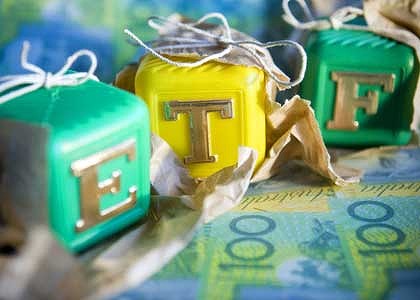When we decided to invest for our future, it may be difficult to launch into the pool. But start is much easier than it might seem.
Here are some of the most popular investments that people often choose from, along with a few tricks that can help you, and how to use them.
Mutual Funds
Many investors start with mutual funds for a very simple reason: it provide a diversified investment portfolio even if you only have a modest amount of money.
Mutual funds collect a lot of money from many investors and then invest collectively, generating investor returns proportional to the money invested. Therefore, the gains from investments made by the fund and losses are shared. There are all kinds of mutual funds – they can buy stocks, bonds and many other investments, including those that focus exclusively on one industry or in companies operating in a particular country.
You can buy shares in a mutual fund in two ways: directly through the company that manages the fund or through brokers that offer a wide selection with hundreds of different background.
Mutual funds are a good way to start investing. With a small amount of money you can commit to an investment plan is already underway.
Shares
Investing in the shares of an individual company helps you to tune your investment capacity.
The shares represent ownership in a particular company, giving you the right to receive dividends and vote on certain corporate matters, including the appointment of the board that runs the company and approval of major events as, for example, a fusion.
If the company businesses are good, the value of the stock tends to rise over time. But if the company has problems, your shares may lose value.
Some companies offer their shares through direct investment programs, but most investors with shares trading accounts using brokers. You will pay commissions to buy and sell stocks, but some brokers charge relatively modest amounts to make the business accessible even for people with limited capital investment.
Bonds
Investing in bonds also involves selecting specific companies and other issuers of bonds, but the relationship is different. With bonds, you lend your money to the issuer of the bond in exchange for the promise receive interest payments on a regular basis and recover the total loan to maturity of the bond.
The bonds usually offer lower returns than stocks, but there is also less risk of losing the entire investment, because even if the company falls and goes bankrupt, bondholders are the first on the list to receive your payment, ahead of shareholders. Some issuers offer bonuses directly but in many cases it is necessary to go to a broker account to access.
ETFs
Exchange-traded funds or ETFs are hybrids that combine features of mutual fund and stock.
Like mutual funds, ETFs raise money from multiple investors and incorporate many underlying investments. Nevertheless share the actions that are also traded through brokers in the bag along the journey. By combining the attractions of both systems, ETFs have gained popularity in recent years.
Brokers usually charge the same fees for ETFs trading that buy and sell stocks. However today, many brokers offer promotions ETFs without commissions. Removing fees can make a big difference to the decision of investing in ETFs or stocks, especially if we do not have a lot of money to invest.
Commodities
Commodities are physical objects that have value, ranging from industrial and precious metals to agricultural and energy production. With some commodities – especially gold and silver – it is easy to obtain physical possession of the object. With others, most investors use alternative investments that do not require physical possession of the goods is made.
Depending on the type of raw material, broker accounts often allow access to investment. In addition, ETFs and specialized operators can provide exposure to certain types of raw materials.
Although you should know all these types of investments, don’t invest in all of them. For beginners, a basic mutual fund or an ETF are probably the best way to start. To go to accumulate knowledge and experience will begin to feel more comfortable and we can incorporate stock and bonds, as well as investments in raw materials, to round off our portfolio.








